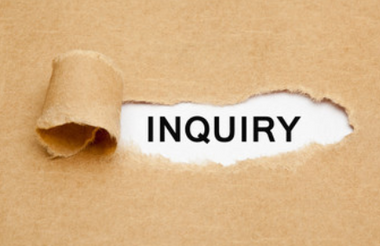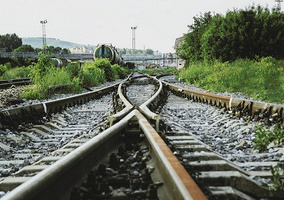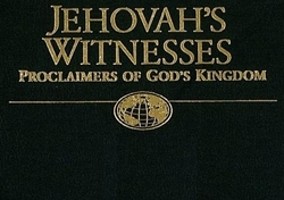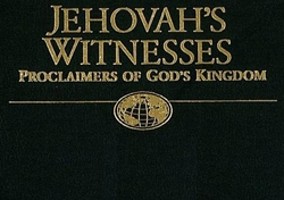The Charity Commission has concluded its nine-year-long investigation into Watch Tower Bible and Tract Society of Britain (Watch Tower), taking the view that the charity is no longer the body responsible for safeguarding within Jehovah's Witness (JW) congregations.
The statutory inquiry was opened in May 2014 to examine the charity's handling and oversight of safeguarding matters such as child protection advice provided to individual JW congregations.
Following the merger of over 1,000 JW congregations into the Kingdom Hall Trust (KHT), the regulator ruled that KHT is now responsible for safeguarding JW beneficiaries, including children.
However, a regulatory compliance case into KHT, which was opened in February 2022, is still under way. The Commission is continuing to engage with KHT trustees to ensure adequate safeguarding policies are in place.
Engagement with Watch Tower began back in 2007
The Commission first began interacting with Watch Tower in 2007. Since then, JW congregations have revised and updated their safeguarding policies on several occasions.
In 2007, a statutory inquiry was launched into a JW congregation – London Mill Hill Congregation of Jehovah’s Witnesses – as a result of historic abuse of 13 young people over a period of 13 years. The offences were committed by a member of a JW congregation.
This inquiry found that the congregation did not have a child protection policy, and one of the outcomes of the investigation was Watch Tower agreeing to develop a policy that was disseminated to all congregations.
Watch Tower disseminated a child protection policy to congregations in 2011.
In 2013, a former ministerial servant of a JW charity was convicted and the Commission sought advice from NSPCC on Watch Tower’s policy.
NSPCC found the policy to “be at odds with UK legislation and guidance”, so Watch Tower updated and recirculated the guidance.
In 2014, the Commission met with Watch Tower over concerns the policy did not address some of the issues raised by NSPCC.
At the time, Watch Tower did not tell the regulator that it was no longer responsible for drafting or disseminating such a policy. Neither did it direct the regulator to the organisation that would be responsible until much later, the report reads.
The regulator opened a statutory inquiry into the charity to investigate the handling of safeguarding matters, the administration and management of the charity and whether or not the trustees had complied with their duties under charity law.
The Commission's inquiry report concluded that while Watch Tower had had a role in disseminating JW’s 2011 child protection policy, by 2017 it had “no role at all in safeguarding, including the production, dissemination and practical implementation of the JW child protection policy”.
The charity does not provide any services to children and no longer has a role in spreading spiritual guidance and advice to other congregations, the Commission found.
Charity’s legal challenges delayed investigation
Throughout the latest inquiry period, Watch Tower launched several legal challenges which “substantially constrained” the Commission's investigation. The regulator's report states that the charity was “not as straightforward or transparent” as it should have been in relation to JW child safeguarding responsibilities.
At a tribunal in 2016, judge Alison McKenna said that Watch Tower had caused prolonged delays to the regulator’s investigation which created “ongoing risks” to children.
The Commission's inquiry report states that during certain phases of the investigation, “the trustees’ communications were protracted, with the charity’s responses often failing to provide the information requested or sufficient clarity to satisfy the inquiry, giving rise to further questions”.
However, it added that there was insufficient evidence to conclude that these behaviours were deliberate attempts to obstruct.
Independent Inquiry into Child Sexual Abuse
JW organisations reported a total of 67 allegations between 2009 to 2019 against 67 individuals involved with the organisations to the Independent Inquiry into Child Sexual Abuse (IICSA).
This included 25 allegations against elders, 32 allegations against ministerial servants and 10 people accused of abuse within an institutional context, such as abuse at a place of worship by a congregant or non-Jehovah’s Witness.
IICSA published its report on Child Protection in Religious Organisations and Settings in 2021. It focused on a number of organisations, including JW.
Watch Tower: ‘Nothing to suggest the trustees did anything other than cooperate with the inquiry’
A spokesperson from Watch Tower told Civil Society that trustees were pleased the inquiry was over, and added: “The Commission’s report confirms that Jehovah’s Witnesses have had a child safeguarding policy in place since 2011. That policy, which is updated periodically, builds on decades of published advice and guidance for families and congregations on the subject of child safeguarding.
“Expert opinion evidence on the child safeguarding policy of Jehovah’s Witnesses confirms that ‘the current child protection policy of JW provides an adequate framework delivering what it sets out to achieve’ and that it ‘offers clear guidance as to the circumstances which would give rise to making a report to civil authorities.’
“In addition, the Commission concludes that there is nothing to suggest the trustees of Watch Tower Britain did anything other than cooperate with the inquiry. In fact, during the inquiry the Commission’s lead investigators repeatedly commended Watch Tower Britain in written correspondence for working ‘collaboratively,’ contributing to ‘productive meetings’ and fostering a ‘spirit of cooperation’. The trustees will continue with the important charitable activity of Watch Tower Britain.”
Charity Commission CEO: ‘Pleased this long-running inquiry has now concluded’
Helen Stephenson, chief executive of the Charity Commission, said: “We are clear that a charity must be a safe, trusted environment and that protecting people and safeguarding should be a governance priority for all charities, regardless of size, type or income. I am pleased that this long-running inquiry, which demonstrates the Commission’s resolve and determination to ensure that safeguarding policy issues are addressed comprehensively by charities, has now concluded.
“Our continuing regulatory compliance case involving the Kingdom Hall Trust aims to ensure that the KHT’s safeguarding policies and procedures protect congregation members and those that come into contact with KHT.”













